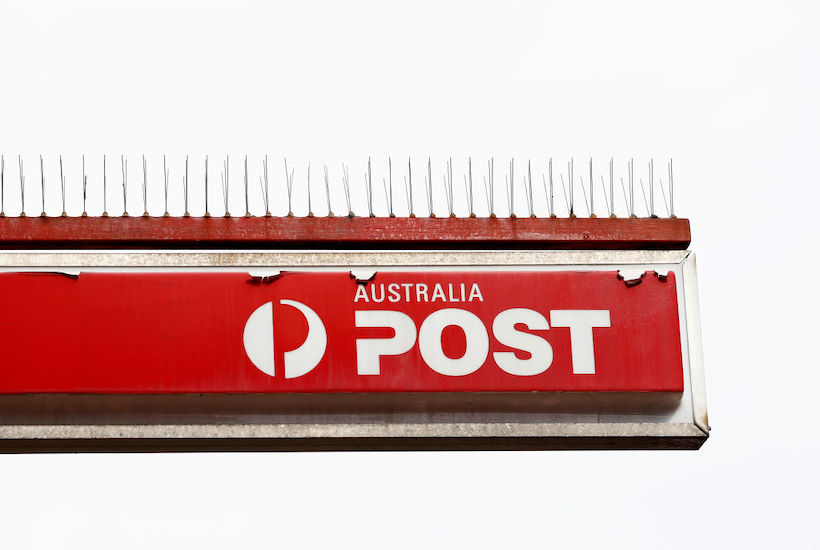Christine Holgate, Australia Post’s MD and CEO, has packed her parachute and is preparing to jump or be pushed from her job.
And in light of last week’s media coverage where her former boss, Marcus Blackmore, said Holgate had been ‘in tears” over her treatment while her lawyers said she had not received “any proper notification that she has been stood down from her role, nor has she been informed as to why she should be stood down” it is clear she is preparing to jump.
Whether she jumps or is pushed is irrelevant except as to positioning to negotiate a payout from her role running a $7.5 billion government business enterprise.
Despite the furore generated around the Cartier watches, Holgate could justifiably keep her position.
After all, these are really issues for the Board and not the government.
The government’s Terms of Reference to “determine whether Australia Post has expended money ethically and acted in a manner expected of a government business enterprise” arose after it was revealed in parliament that Holgate had spent $20,000 buying Cartier watches for four employees as a bonus.
The optics of this revelation forced the government to act, but the Terms of Reference are more sweeping than would be expected.
They include:
The facts around an incident involving the provision of wristwatches to Australia Post staff in late 2018;
The role of the then Australia Post Chair and Board, and the Managing Director and Chief Executive Officer in the incident;
Whether there are other instances in Australia Post inconsistent with appropriate behaviour for a GBE that require further investigation;
Whether this incident or other instances (including the actions of those involved) are consistent with:
the obligations of Directors and Chief Executives of Government Business Enterprises
the efficient, effective, economical and ethical expenditure of money and use of public resources
the extent to which Australia Post’s governance arrangements and management culture, in particular in relation to gifts, rewards and expenses, including personal expenses of executives:
supports the efficient, effective, economical and ethical management of resources
meets the expectations of the public around the leadership and governance of Australia Post as a public institution
require further investigation or review.
As the government is the only shareholder it has a right to demand an inquiry, but this appears to be a level of micromanagement for a GBE such as Australia Post that must, if it is to deliver its key loss-making raison d’etre of delivering mail, operate as a commercial entity as outlined in Flat White last week.
If Holgate goes, as increasingly seems certain, then whoever the board replaces her with will have to continue to run Australia Post on a commercial basis competing against other similar private entities in the parcel delivery business and as a service agency for private sector business.
The government instead of focussing on this sideshow and attempting to micro-manage Australia Post turn their gaze onto the statutory authorities that rely solely on taxpayer funds to do their jobs.
The Australia Post inquiry Terms of Reference should be used to do a root and branch review of the structures, practices and salary schemes of these organisations.
For example the ABC receives $1 billion annually from taxpayers yet pays out bonuses to their executives and staff.
Employees of the Australian Tax Office, ASIC and similar bodies are employed under the Australian Public Service Act yet they too can enjoy bonuses.
The question has to be asked that as these organisations rely principally on taxpayer funds, why they should get bonuses simply for doing their jobs?
The government should use the Australia Post Terms of Reference to inquire into the operations of statutory organisations across the board in light of the ASIC’s chairman, James Shipton’s use of taxpayer funds to pay for tax advice (and has stood aside) while deputy chair, Daniel Crennan, who received $70,000 in expenses has resigned
Statutory authorities are not GBE which have to operate commercially and their pay and conditions should reflect that.
Operating as regulators there is no justification for these perquisites, excessive salaries or bonuses for employees or board members for simply doing their job.
If the government was serious about governance issues they should turn a steely eye onto the operations of statutory authorities instead of trying to micro-manage Australia Post.
Got something to add? Join the discussion and comment below.
Get 10 issues for just $10
Subscribe to The Spectator Australia today for the next 10 magazine issues, plus full online access, for just $10.


























Comments
Don't miss out
Join the conversation with other Spectator Australia readers. Subscribe to leave a comment.
SUBSCRIBEAlready a subscriber? Log in